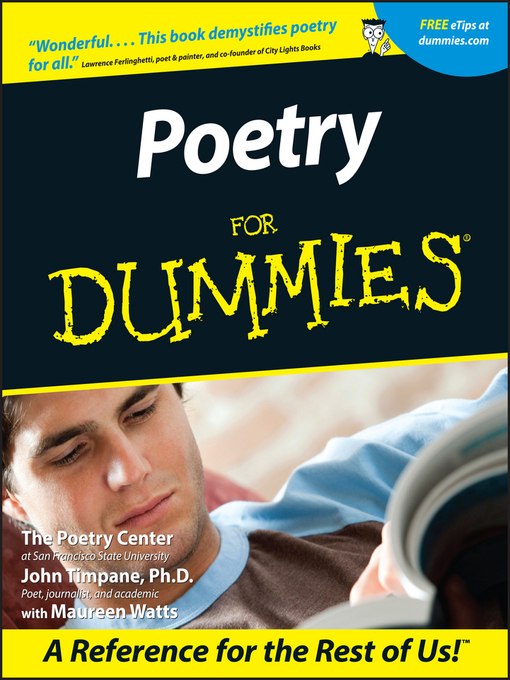Sometimes it seems like there are as many definitions of poetry as there are poems. Coleridge defined poetry as "the best words in the best order." St. Augustine called it "the Devil's wine." For Shelley, poetry was "the record of the best and happiest moments of the happiest and best minds." But no matter how you define it, poetry has exercised a hold upon the hearts and minds of people for more than five millennia. That's because for the attentive reader, poetry has the power to send chills shooting down the spine and lightning bolts flashing in the brain — to throw open the doors of perception and hone our sensibilities to a scalpel's edge.
Poetry For Dummies is a great guide to reading and writing poems, not only for beginners, but for anyone interested in verse. From Homer to Basho, Chaucer to Rumi, Shelley to Ginsberg, it introduces you to poetry's greatest practitioners. It arms you with the tools you need to understand and appreciate poetry in all its forms, and to explore your own talent as a poet. Discover how to:
Don't know the difference between an iamb and a trochee? Worry not, this friendly guide demystifies the jargon, and it covers a lot more ground besides, including:
From Sappho to Clark Coolidge, and just about everyone in between, Poetry For Dummies puts you in touch with the greats of modern and ancient poetry. Need guidance on composing a ghazal, a tanka, a sestina, or a psalm? This is the book for you.
